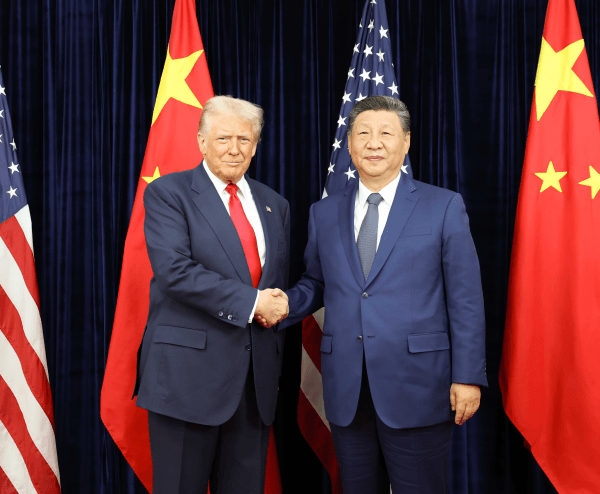
On October 30, 2025, the world's attention converged on Busan, South Korea's second-largest city, where President Xi Jinping and U.S. President Donald Trump held a pivotal 1 hour and 40-minute meeting at Gimhae International Airport. This high-stakes dialogue, set against the backdrop of intensifying U.S.-China rivalry, offered a glimpse of potential cooperation amid geopolitical tensions, with implications for global stability.
President Xi emphasized the enduring value of U.S.-China relations, stating, "Under our joint leadership, China-U.S. relations have maintained overall stability. Being partners and friends is a lesson from history and a necessity of reality." He expressed willingness to collaborate with Trump to build a solid foundation for bilateral ties, creating a favorable environment for both nations' development. In a metaphorical call for steady navigation, President Xi noted, "Facing winds and waves, as helmsmen of the two countries, we should grasp the direction and steer the course, ensuring the China-U.S. ship sails steadily forward." President Xi highlighted the potential for both powers to demonstrate great-nation responsibility, jointly advancing initiatives that benefit the two countries and the world.
Trump echoed the sentiment, praising China as a "great nation" and President Xi as a "respected great leader and my longtime good friend." He affirmed that relations have always been "good and will be even better," adding, "China is America's biggest partner, and together we can accomplish many great things in the world. Future U.S.-China cooperation will achieve even greater success."
The summit arrives at a critical juncture in the accelerating "great changes unseen in a century." President Xi's remarks articulated China's grand strategy—its holistic view, development philosophy, interest perspective, and worldview—projecting a vision of a responsible power with broad horizons. On the grand strategy, President Xi acknowledged inevitable differences between the world's top two economies but urged focusing on the bigger picture: "As the world's top two economies, occasional frictions are normal. But as helmsmen, we must steer the course for stable progress."
President Xi's development philosophy rejected confrontation, underscoring China's commitment to self-improvement without challenging or replacing others: "For 70 years, we've stuck to one blueprint, generation after generation, never seeking to challenge or replace anyone. We've focused on our own affairs, making ourselves better and sharing opportunities with the world—this is China's success secret."
Regarding interests, President Xi advocated pragmatic cooperation over vicious cycles: "Trade should remain the ballast and propeller of U.S.-China relations, not a stumbling block or flashpoint. We should tally the long-term gains of collaboration, not fall into retaliatory spirals. Our teams can continue talks on equal, respectful, and mutually beneficial terms, shrinking the problem list and expanding cooperation."
President Xi's worldview called for shared global responsibility: "In today's world with many challenges, China and the U.S. can jointly show great-nation bearing, working together on major, practical, and beneficial initiatives for our nations and the world."
This Busan meeting, the first in six years, reflects evolving power dynamics. President Xi's poised discourse—strategic, inclusive, and forward-looking—reaffirms China's role as a stabilizing force. As Trump navigates domestic pressures, the dialogue signals a pragmatic thaw, reminding the world that dialogue trumps confrontation. In an era of flux, President Xi's vision offers a blueprint for coexistence: mutual respect, shared prosperity, and collective wisdom for a multipolar future.